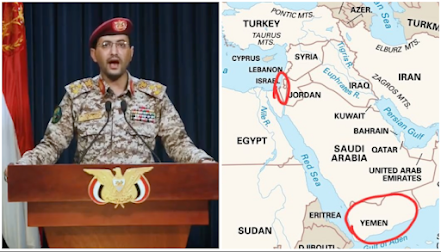In a dramatic escalation of the Israel-Hamas conflict, the Iran-backed Houthi rebels in Yemen have officially joined the fray, declaring war against Israel. The rebels claimed responsibility for a series of missile and drone attacks targeting the southernmost Israeli city of Eilat on October 31st, marking a significant development in the already tense geopolitical landscape of the Middle East.
Israel’s military reported intercepting the incoming threats off the Red Sea city of Eilat, attributing the attacks to the Iran-backed Houthis in Yemen. The Arrow air defense system successfully intercepted a surface-to-surface missile, marking the first operational use of the long-range system in the ongoing conflict with Hamas.
The Houthi rebels, however, were quick to confirm their involvement, stating that they launched a substantial number of drones and missiles towards Eilat. Yahya Sria, the spokesperson for the Houthis, justified the assault as a response to the “weakness of the Arab world” and the collaboration of some Arab countries with Israel. The rebels cited religious, moral, humanitarian, and national responsibility for the people of Gaza as the driving force behind their actions.
The Houthi slogan, “Death to America, Death to Israel, Curse the Jews, Victory to Islam,” underscores their alignment with Iran and positions them as a significant player in the “axis of resistance” against Israel, alongside Hamas.
The timing of these attacks is noteworthy, coming on the heels of the 7th October terrorist attack by Hamas on southern Israel and Hezbollah attacks in the north. Eilat, a southern resort city, has now become a focal point for Iran-backed terror outfits, leading to increased tensions and concerns for the displaced Israelis seeking refuge in the city.
This recent incident follows a pattern of aggression from the Houthis, with previous attempts to launch missiles towards Israel through the Red Sea. The involvement of the United States, as confirmed by the Pentagon, in intercepting missiles fired by Houthi rebels underscores the international implications of this conflict.
The situation remains highly volatile, with the Houthi rebels openly declaring their intent to continue targeting Israel. As the conflict unfolds on multiple fronts, the global community watches closely, aware that this development has the potential to reshape the dynamics of the already complex Middle East geopolitical landscape.




